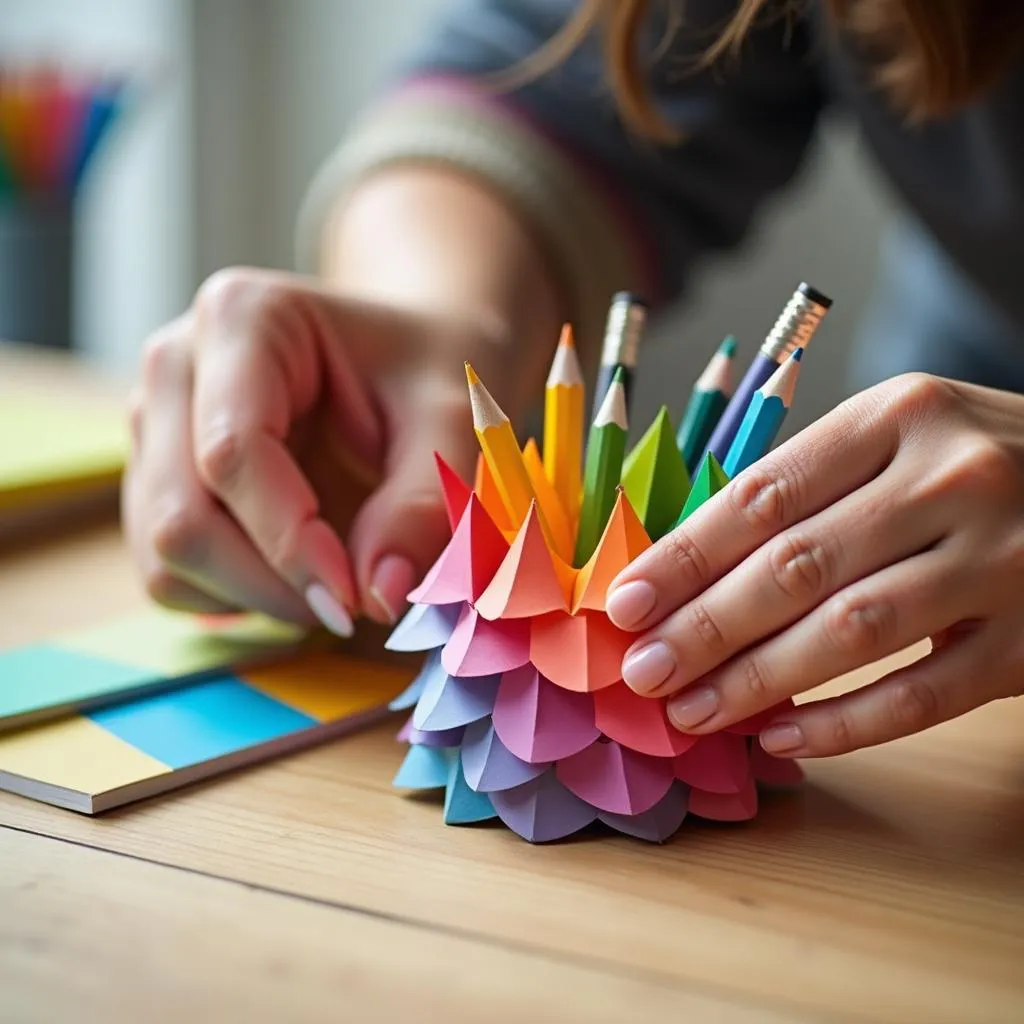“Talent in learning, fate in exams,” a saying passed down from our ancestors, sounds like a lament about the harshness of fate. But is it true that just being good at studying guarantees success? Reality shows that alongside textbook knowledge, self-learning skills are the golden key that unlocks the door to success. So, how can we cultivate this valuable skill? Let’s explore effective self-learning methods for students with HOC LAM! Similar to how to become a student model for photos, building a foundation for self-learning also requires methodology and persistence.
Secrets to Self-Learning for Students
Self-learning is not just about sitting at a desk and reading books. It’s a whole process of actively seeking, exploring, and absorbing knowledge. Ms. Nguyen Thi Lan, an experienced teacher at Hanoi – Amsterdam High School for the Gifted, shared in her book “The Journey of Self-Learning”: “Self-learning is an art, and the learner is the artist.” So, how can you become a true “artist” of self-learning?
Define Your Learning Goals
Before you begin, ask yourself: “Why am I learning this?”. Clearly defining your goals will give you motivation and proper direction in your self-learning journey. For example, do you want to achieve high scores in the upcoming exam, or do you want to master knowledge to apply it in practice?
Create a Detailed Study Plan
“Well begun is half done,” but with a detailed plan, self-learning becomes much easier. Break down knowledge into smaller parts, set specific goals for each day and each week. This helps you monitor your learning progress and avoid last-minute cramming.
Create an Ideal Learning Environment
A quiet, airy, and well-lit space will help you concentrate better. Tidy up your desk, and eliminate distractions like phones and TVs.
Student organizing study desk
Effective Study Methods
Learning more isn’t always better. The important thing is to learn with the right methods. Find study methods that suit you, whether it’s note-taking, mind mapping, or group study. Mastering the basics is also crucial; it’s like building a house – a solid foundation makes for a sturdy house. Similar to how to reduce biological age, finding the right study methods also requires exploration and experimentation.
Student using mind map to study
Common Difficulties in Self-Learning
During self-learning, you will definitely encounter difficulties. Don’t be discouraged; see them as challenges to train yourself. Mr. Pham Van Tuan, a lecturer at Hanoi National University of Education, once said: “Difficulties are not meant to make us fall, but to help us rise.” Some common difficulties include: lack of concentration, difficulty understanding lessons, lack of motivation, etc.
Solutions to Overcome Difficulties
When you encounter difficulties, seek help from teachers, friends, or search for information online. The important thing is not to give up. Remember, “constant dripping wears away the stone.” Finding solutions is also like how to make DIY skin peeling solution, it requires careful research and attention.
Students discussing study problems together
Conclusion
Self-learning is an important skill that helps you actively acquire knowledge and develop yourself. We hope this article has provided you with useful information on how to self-learn effectively as a student. Be persistent in your practice, and success will come to you. Don’t forget to share this article if you find it helpful! You can also refer to how to make simple drawstring bags for students and how to create interactive plays for students on our website. Contact us immediately at phone number 0372888889 or visit us at 335 Nguyen Trai, Thanh Xuan, Hanoi for further consultation. We have a 24/7 customer care team.
